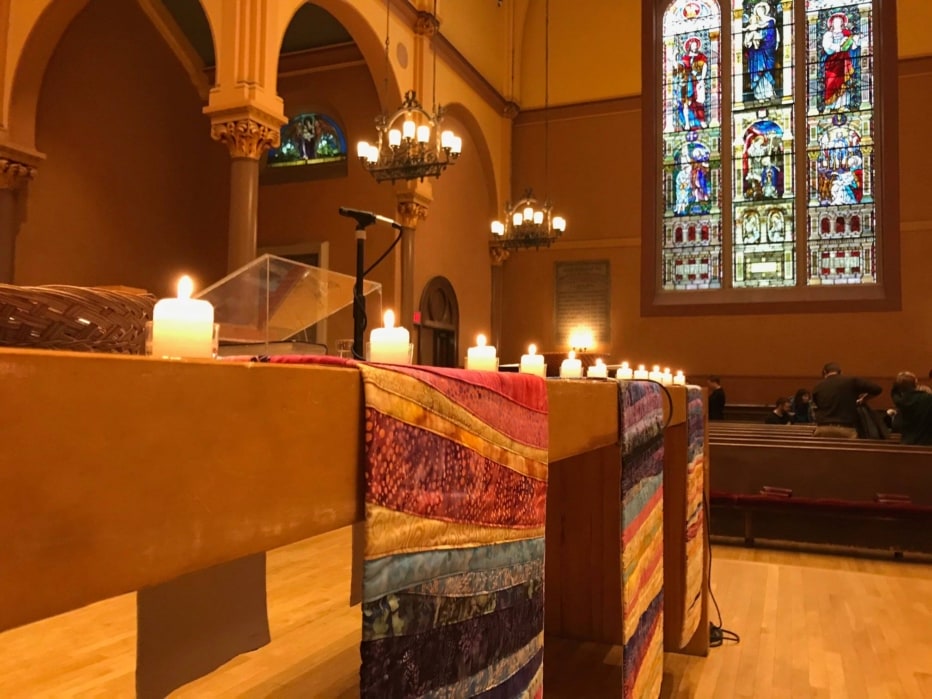
Grief and Lament: When we feel like lamenting isn’t the adult thing to do
There’s always that moment when you get life-altering information after you have gone through the denial, the shock, the anxiety and fear about the unknown, when your heart just breaks because of what you do know. You know that the road ahead is going to continue to be grueling, that this struggle is your new reality and it is not something that you chose or ever imagined for yourself, your family, or the world. And you want to throw a tantrum at God. You want to sit down in the middle of the floor wherever you are and cry at God about what is happening. You wish with all your being that this kind of physical, embodied way of expressing pain beyond words was at all socially acceptable or something that you feel would fall in the context of the behavior of a person of faith. It’s so easy to categorize something as visceral as true lament into something adults shouldn’t do or something that suggests that we are lacking in faith.
But the thing is, is that lament is exactly what scripture tells us is a practice for a person of faith. In fact, a whole book of the Bible is devoted to this very practice, the Book of Lamentations attributed to the prophet Jeremiah.
The prophet cries in Lamentations 3: 2-18 “God has driven and brought me into darkness without any light; 3 against me alone he turns his hand, again and again, all day long. 4 He has made my flesh and my skin waste away, and broken my bones; 5 he has besieged and enveloped me with bitterness and tribulation; 6 he has made me sit in darkness like the dead of long ago. 7 He has walled me about so that I cannot escape; he has put heavy chains on me; 8 though I call and cry for help, he shuts out my prayer; 9 he has blocked my ways with hewn stones, he has made my paths crooked. 10 He is a bear lying in wait for me, a lion in hiding; 11 he led me off my way and tore me to pieces; he has made me desolate; 12 he bent his bow and set me as a mark for his arrow. 13 He shot into my vitals the arrows of his quiver; 14 I have become the laughingstock of all my people, the object of their taunt-songs all day long. 15 He has filled me with bitterness, he has sated me with wormwood. 16 He has made my teeth grind on gravel, and made me cower in ashes; 17 my soul is bereft of peace; I have forgotten what happiness is; 18 so I say, “Gone is my glory, and all that I had hoped for from the Lord.”
There is a long and ancient tradition of throwing tantrums at God. Our ancestors, the ones who we look to for guidance in our sacred scriptures, were suffering just as we suffer here in our modern lives. Lamenting at God for our suffering does not make us less faithful, it makes us more human. It shows that we believe in the presence of the God that we are crying out to, and have faith that God will have compassion for our pain. Every healthy relationship requires that everyone expresses their needs. This fundamental requirement applies as well to our relationship with God, especially during a time when we might not see the way forward through seemly insurmountable challenges. While we may not be confident about when we will find a way through our distress, in the meantime, we can find comfort in knowing that God can receive our laments with grace and love beyond our understanding.
God of the brokenhearted and of the mercy hungry,
You who hear the cries of those in need,
Here my cry today.
Be with me in my ever-present struggle to make it through the day.
Help me cry it out
Help me feel free to spread my form on the floor in protest
To flail my arms as if I were fighting off an enemy
Help me fight off this enemy.
Help me feel what I need to feel
Restore my hope in you
So that I might day by day move on my path
Towards healing and a way forward
In this silence hear my lament:
(Silence)
Thank you, God, for holding me while I tantrum, for however long I need.
Amen.
How can you cultivate self-compassion around your moments of lament?
How might lamenting to God contribute to your spiritual resiliency?
Today, on this Good Friday, take one extra moment to voice your laments in an embodied way by laying on the floor before bed or placing your forehead on a nearby surface to honor the grief in your heart.
